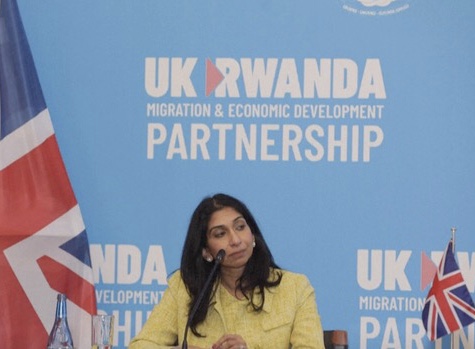Members of the Lords on Wednesday 28 June, began the process known as the report stage, which allows peers to scrutinise, discuss and propose changes to the Illegal Migration Bill put forward by the government. The bill in its current form ‘seeks to prevent and deter unlawful migration, and in particular migration by unsafe routes, by requiring the removal of anyone arriving illegally in the UK to their home country or to a safe third country to have their asylum claim processed’.
Lords members have been outspoken in recent weeks and have cautioned the government that Britain’s reputation on the world stage could be in jeopardy if the government breaks international treaties in its attempt to tackle small boat crossings.
Peers insist bill will be in breach of European treaties
Earlier this month Peers in the House of Lords, including a former Tory immigration minister, tabled an amendment to the Illegal Migration Bill, which if accepted, would prevent the government from breaching five international treaties signed since the Second World War. If passed the amendment will ensure that nothing in the new legislation conflicts with the 1950 European Convention for the Protection of Human Rights and Fundamental Freedoms; the 1951 UN Convention relating to the Status of Refugees including the Protocol to that Convention; the 1961 UN Convention on the Reduction of Statelessness; the 1989 UN Convention on the Rights of the Child and the 2005 Council of Europe Convention on Action against Trafficking in Human Beings.
Suggestions that the Lords may scupper the government’s bill have filled the media in the last few weeks, not least from high profile members such as the Archbishop of Canterbury, Justin Welby, who described the bill as:
‘…isolationist, it is morally unacceptable and politically impractical to let the poorest countries deal with it alone and cut our international aid… This is an attempt at a short-term fix. It risks great damage to the UK’s interests and reputation at home and abroad, let alone the interests of those in need of protection or the nations who together face this challenge’
Government’s worst fears confirmed
Government concerns that the bill would face a rocky ride through the Lords, would seem to have been justified as in the first of three report stages, the government has seen the bill defeated three times. Peers voted Wednesday, first for an amendment requiring that the key international obligation should be adhered to within the provisions of the bill. Then they voted that the deportation of those arriving by unauthorised routes should not be backdated to last March and finally that the modern slavery safeguards must be in place within the bill.
MPs demand government abandons plans to send children to Rwanda
Just a day earlier on Tuesday 27th June, parliamentary members of the Women and Equalities Committee, called on the government to abandon its plans to detain and send children to Rwanda, warning that any risk to children ‘outweighs any perceived damage’ to the effectiveness of the government’s policy. One Conservative MP condemned officials who he said did not see claimants as ‘people, but as problems’.
There is growing sentiment in the House of Lords against key elements of the bill, which will see the law changed so that people who come to Britain ‘illegally’ through a safe country are not allowed to stay, instead being detained and removed, either to their home country or a safe third country such as Rwanda. The chair of the women and equalities committee, Caroline Nokes, said: ‘
‘One of our biggest concerns is the treatment of children within the asylum system…any intention to detain child asylum seekers under the Illegal Migration Bill and forcibly remove them to Rwanda must be abandoned’
Bar Council urges peers to reject the bill
Last month the Bar Council briefed the House of Lords prior to a second reading of the bill and urged members to:
‘…reject the Illegal Migration Bill because it undermines access to justice, unjustifiably removes judicial scrutiny of executive action, and sets out a framework of operation that is incompatible with the Human Rights Act 1998 (HRA)’

















